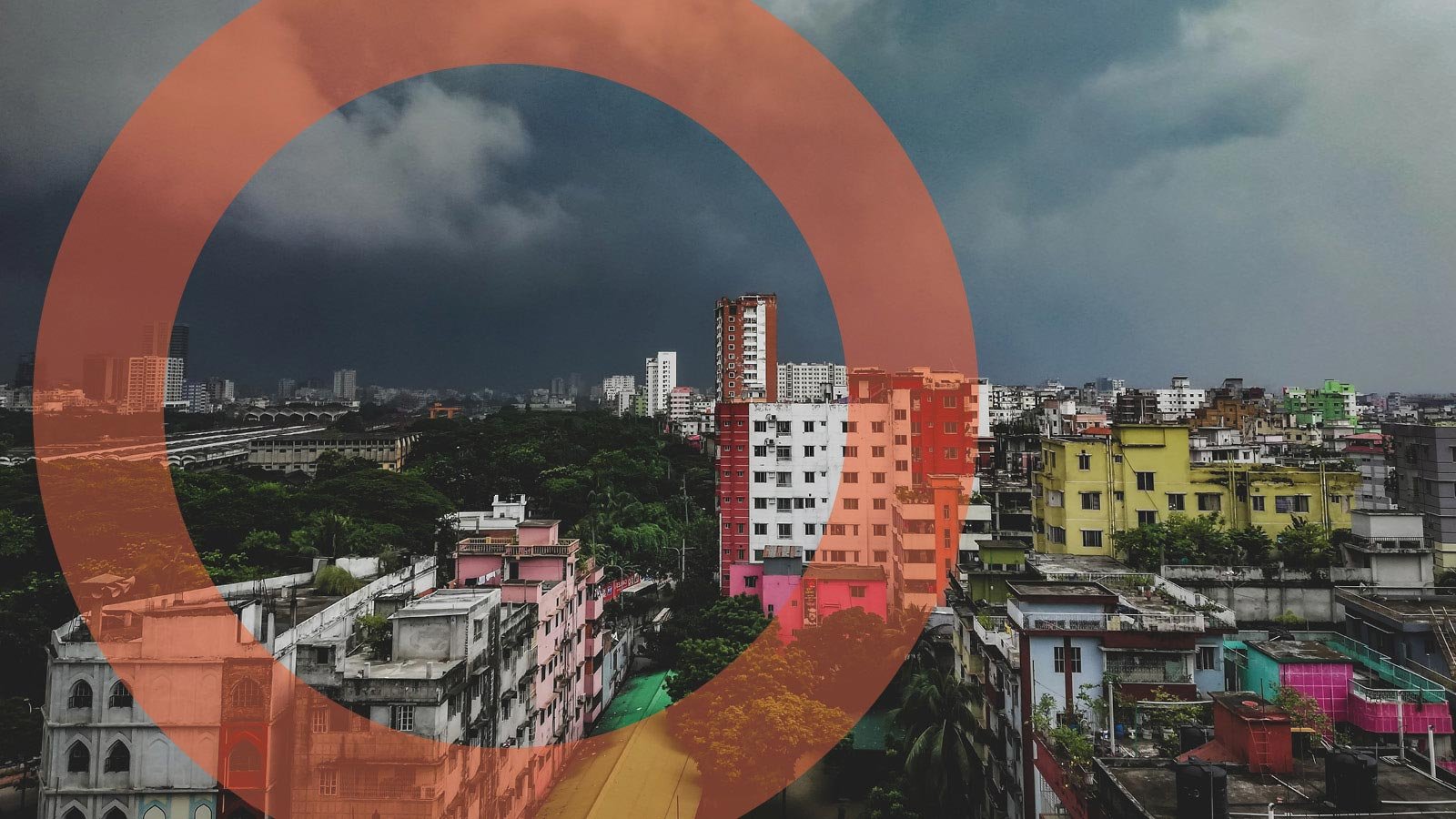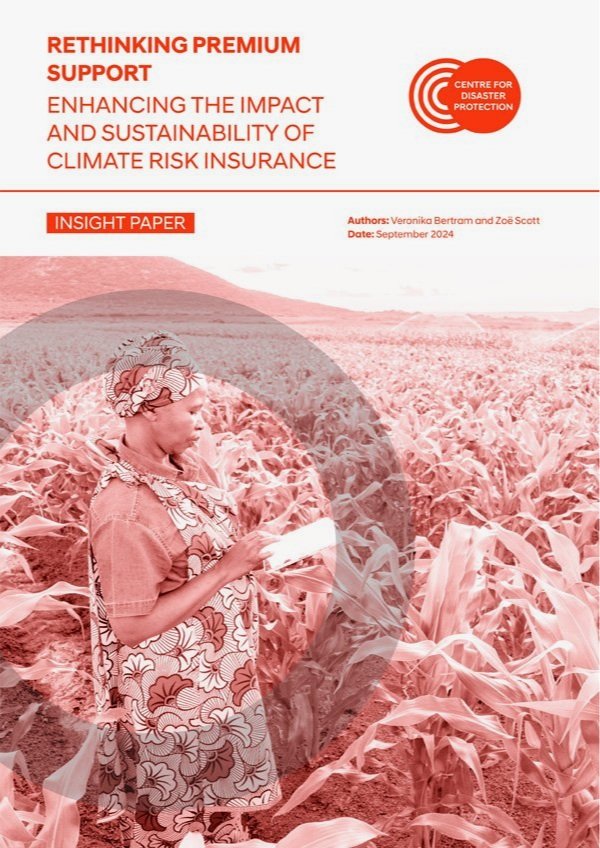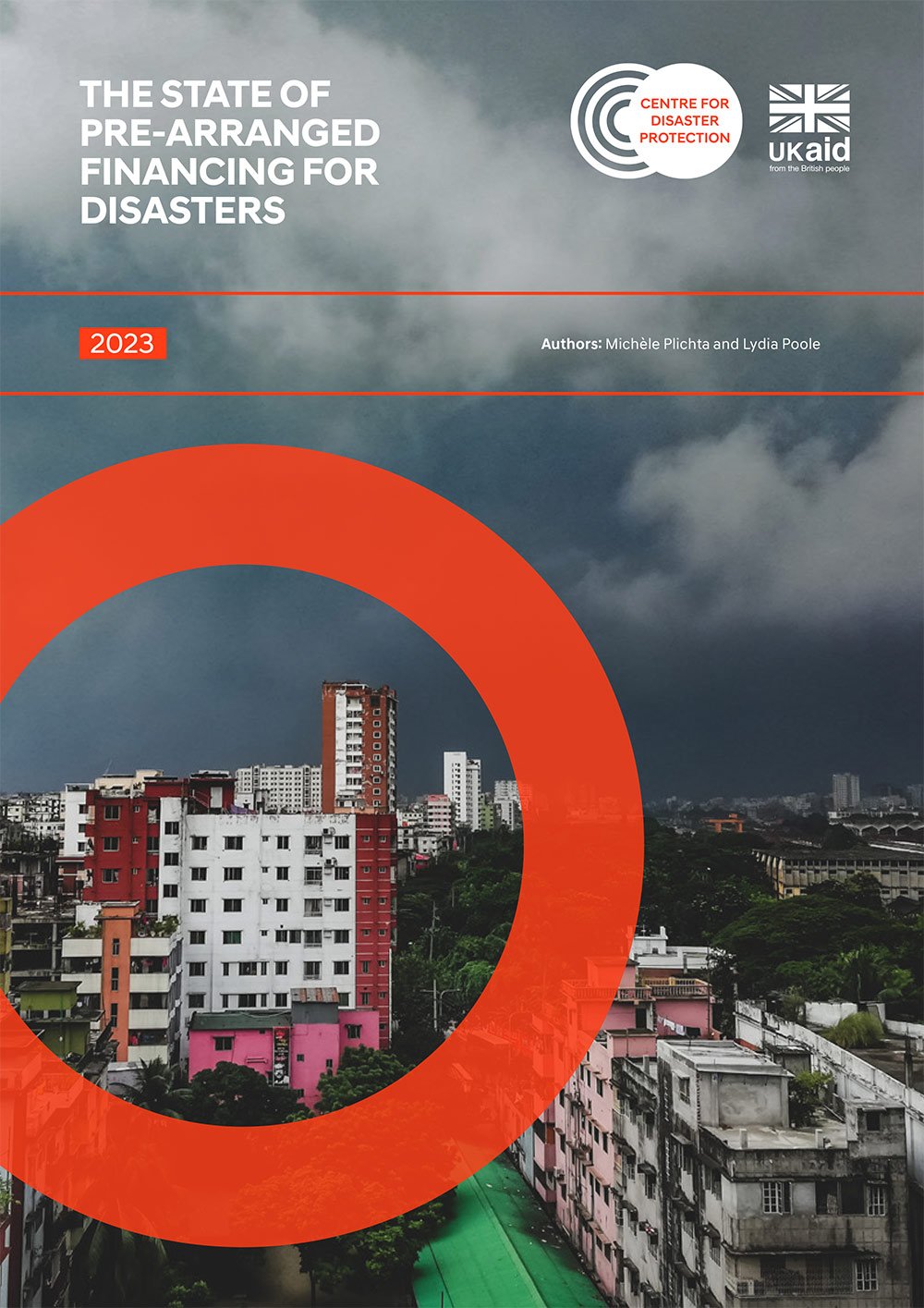
PUBLICATIONS CENTRE

RETHINKING PREMIUM SUPPORT: ENHANCING THE IMPACT AND SUSTAINABILITY OF CLIMATE RISK INSURANCE
This insight paper aims to support policymakers and practitioners as they seek to scale up financial protection against climate-related shocks through sovereign insurance solutions. It explores the complexities of international premium support and identifies core problems with current approaches to the allocation and design of premium subsidies. It proposes some basic but vital shifts needed in the way premium support is designed, allocated and provided to create a more inclusive, transparent and sustainable approach.

A YEAR IN REVIEW: ANNUAL REPORT 2023-24
A Year in Review is the Centre’s first published annual report. It details our progress and the challenges we’ve encountered, and showcases our impact from July 2023 to June 2024.

THE GAMBIA DISASTER RISK FINANCE DIAGNOSTIC
This Disaster Risk Diagnostic supports The Gambia’s efforts to strengthen disaster risk financing and recommends ways to build a clearer risk profile.

A SOCIAL PROTECTION ‘RISK DEAL’: THE MISSING ELEMENT FOR CONNECTING MONEY-IN AND MONEY-OUT
This working paper asks what is required for social protection systems to deliver timely, predictable, well-targeted and cost-effective shock response to disasters. Currently, international support for two key elements – namely, investments in shock-responsive social protection and securing pre-arranged funds for shock response – are growing. The paper, however, argues that a third, linked element is necessary: the need for governments to clarify a shift in the social contract through reliable disaster-contingent public policy and for international actors to align behind this objective.

FINANCING ADAPTIVE SOCIAL PROTECTION IN BURKINA FASO
As part of the Centre for Disaster Protection's support to the World Bank Sahel Adaptive Social Protection Program (SASPP), the UK-funded Sahel Shock Response Programme seeks to develop a baseline of in-depth analysis on the social protection and disaster risk financing (DRF) landscape in the Sahel region. This is the first in a series of diagnostic reports aimed at informing the design and programming of the Centre’s support to the SASPP.
Available in English and French.

THE STATE OF PRE-ARRANGED FINANCING FOR DISASTERS 2023
Planning and preparing for shocks pays. Prearranged Financing (PAF) for disasters has the potential to significantly increase the predictability, speed and effectiveness of responses to shocks. Currently, it is unclear how much pre-arranged finance is required to protect crisis-vulnerable people against risk, how much coverage there is in place, and how far we are from achieving adequate coverage, targeted to the right places, for those people most at risk. This data-led report collates the best available data to start to assess and monitor annually the state of pre-arranged financing supported with international development financing in low-and middle-income countries.

MEASURING THE CRISIS PROTECTION GAP: A SUMMARY OF RESEARCH EXPLORING TECHNICAL APPROACHES FOR ESTIMATING GLOBAL CRISIS PROTECTION COSTS
The number of people whose lives are threatened by crises is increasing and current responses are inadequate and inefficient. Pre-arranged financing is a critical component in improving crisis response. Therefore, understanding the gap between crisis financing needs, and how much is pre-arranged, could have a wide range of benefits. This report synthesises research exploring the feasibility of producing quantitative estimates of the costs of crisis protection across a variety of geographies and crisis types. Based on this research it presents a conceptual framework and provides demonstration analyses. The conclusions shine a light both on how it is increasingly possible to generate forward looking estimates of crisis protection gaps, what challenges remain and the benefits of overcoming these challenges.
